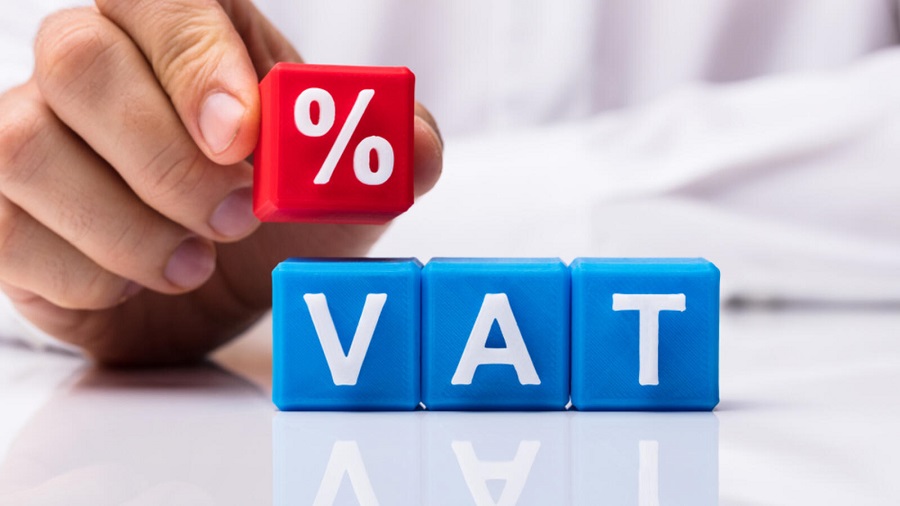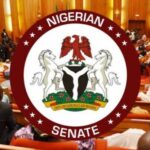There are two fallacies in Nigerian politics. The first is that all the states in the southern part of the country are in the same situation politically and economically so that whatever is good for one southern state is automatically good for the rest in the context of Nigerian federation. The second is the persistent assumption that the southern Peter is always, politically and economically, robbed to pay the northern Paul. The reality is much more complex, of course, but like all fallacies, these too are emotionally appealing, if empirically not so assuring.
These fallacies influence a lot of political debate in Nigeria, and exacerbate the distrust between the component parts of the country, quite unnecessarily. The still emerging—and for me, welcome—debate about how the Value Added Tax (VAT) is collected and distributed in the country is the latest victim of this unfortunate thinking about Nigeria. A lot of reporting and commentary in the media so far, and of course, political posturing by politicians across the country have all presented this issue as a means of redressing the ‘injustice’ of southern Peter paying for northern Paul’s living. It does not need to be so because this issue can be viewed differently in many ways.
- PHOTOS: Fani-Kayode dines at residence of another minister
- Audit: 39 agencies failed to retire N2.2bn advances to federation accounts — Senate
First, whichever way the Supreme Court’s decision goes on this case, it can only help to strengthen our constitutional development and offer legal clarity where not much existed before on the issue. But this case is not an issue of ‘federalism’ in the same sense as say, state policing, where the federal government stands accused of concentrating too much power to itself to the exclusion of the states. VAT collection and distribution is not about devolution of power, or the power of the federal government in relation to the states. It is a convenient arrangement that avoids the chaotic system of sales tax it replaced.
Presently, 85 per cent of all VAT proceeds collected goes to the states (50 per cent) and local governments (15 per cent), while the federal government itself keeps 15 per cent, including the 4 per cent that goes to the Federal Inland Revenue Service (FIRS) for its job of collecting it on behalf of everyone else. The 85 per cent that goes to the states and local governments is then allocated on the basis of equality of states (50 per cent), population size (30 per cent), and derivation (20 per cent). For all the hot hair raised on this case so far, this is really the crux of the matter. But even this is not as imbalanced as it appears because the federal government, which takes the least share of VAT, actually generates over 50 per cent of the total VAT collected in the country from foreign-import, foreign non-import and other forms of local VAT collectible only by it.
Of course, there is no question that Lagos, Rivers, and a handful of other states are at significant disadvantage in a sharing formula based only on 20 per cent derivation. But this only goes to show that the argument is not about the political dichotomy between the North and the South. In the end what is most likely to change is the weight given to derivation from the 85 per cent that goes to the subnational governments. And here, the suggestion by the Director-General of Lagos Chamber of Commerce and Industry, Dr Chinyere Almona, that the existing formula can be reversed to 50 per cent derivation, 30 per cent for population size, and 20 per cent for equality of states might just suffice for a political, if not legal, settlement.
But the crude thinking that each state can impose and collect its own VAT and then keep all of it is practically unworkable in Nigeria because different states can impose different rates on the same businesses across the country. This means chaos for businesses with branches across the country, that is, the same businesses strong enough to pay tax for the long term. Moreover, while it is easy for states to enact laws for collecting VAT, enforcing those laws by them will not be as easy as it appears. One reason the federal government, through the FIRS, collects VAT on behalf of states is because it has more capacity to do so. Were the states to do so individually, many businesses may simply refuse to pay, especially where rates differ significantly between states.
In other words, this issue is not so much about VAT as it is about the political economy of Internally Generated Revenue (IGR) and the economic reforms needed at all levels of government in Nigeria. As I understand it at this moment, the important issues and the reforms needed to tackle them are three. The first of these is that all Nigerian states and the FCT, collectively and individually, generate too little IGR presently. This includes Lagos State, which last year accounted for 38 per cent of all IGR among the 36 states and the FCT.
According to data by the National Bureau of Statistics (NBS), all the 36 states and the FCT generated N1.31trn in 2020. That is a pitiable N6,550 per capita (per person). Moreover, as reporting by Nairametrics has shown, even the South West, the region with the highest amount of IGR at N561.01 billion in 2020 and with a population of 40.17 million people has a only a per capita revenue generation of N13,966, or just slightly double the national average. Every other region is worse off, with the North West an abysmal N2,855 per capita revenue generation.
So the first question really worth asking is not that Lagos generates more than others, but why and how a population of over 200 million people generates so little revenue internally? If we start with the general expectation that, all things being equal, paying tax is incumbent on all adults in the country, these poor figures mean that as citizens either we are not paying much tax, or we do not receive incomes reasonable enough to pay more tax, or that a large number of our economic transactions go untaxed, or that states have not developed creative ways for tapping into taxes they are well due. I suspect that all these factors apply, but the latter two more than most.
Too many transactions go untaxed in Nigeria because states simply cannot be bothered to look for ways of taxing them. Look closer at the breakdown of IGR for each state by NBS, starting with the much cited Lagos which in 2020 generated N418.99bn. For a state with a population of over 13 million people, this is quite low in my view, although, of course, it is criminally, even suicidally, low in Kano with a comparable population but only N31.9bn IGR during the same year. But the real focus here is that according to NBS data, 66.59 per cent of this figure comes from PAYE alone, that is, taxes deducted directly from those who earn salaried income.
The reminder 33.41 per cent comes from all the other four sources of IGR combined. These include MDAs revenue (monies paid to government public services such as schools, hospitals, courts, and so on), road taxes (paid by commercial drivers), direct assessment (taxes paid by those self-employed), and ‘other taxes’ (from various sources such as those paid by market traders, land registration, lottery, etc). This trend—where the formal sector pays over two-thirds of total IGR through PAYE deductions from salaries—is the same across all the 36 states and the FCT.
So one reason why Lagos, Rivers, FCT, and a few other states generate more IGR is simply because they have a larger pool of workers in the formal sector to tax through PAYE than the other states. In other words, the real Peter being robbed to pay Paul is neither northern nor southern, but specific individuals in the formal sector, which in the Nigerian economy only make up about 35 per cent of the total. How then can Lagos and all the other states significantly improve their IGR? What reforms are needed?

 Join Daily Trust WhatsApp Community For Quick Access To News and Happenings Around You.
Join Daily Trust WhatsApp Community For Quick Access To News and Happenings Around You.


